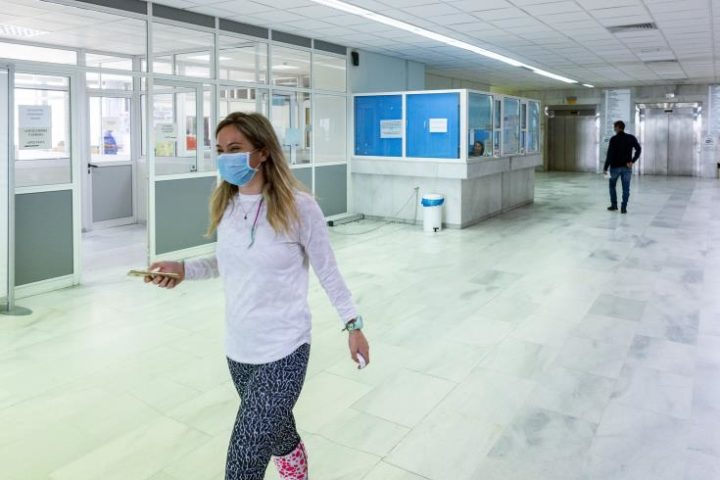Apologies don’t come easy in Cyprus politics; in fact, it’s rarer than a unicorn crossing the street wearing a face mask while keeping socially distanced.
If the week that passed is a taster for the rest of the year, it will be an eventful 12 months.
Maybe more frightening than the earthquake that shook Paphos is legislation passed that requires civil servants to be good at what they do if they want a promotion.
For decades, a fat-pay cheques promotion simply required you sat at your desk longer than Father Time without doing anything in particular.
There was no assessment on the ability to do the job, productivity or academic qualifications.
As the civil service was a dumping ground for political favours and nepotism, nobody really cared if they could do the work.
Sacking a civil servant is impossible, and they could only be assessed as ‘excellent’ because there were no expectations.
It is why on the frontline of government service, the public is discouraged from picking up the phone to speak to someone in authority or expect a reply from email requests.
Public service is exactly the description of what doesn’t occur on any given day of the week.
Government departments are digital-free zones where files are stacked in boxes to be forgotten about, while documents need a royal seal of approval.
That’s why getting things done take so long; the last King or Queen of Cyprus died over 500 years ago; that’s how long it will take our bureaucracy to untangle itself.
Even amid the pandemic where physical contact is shunned, there is hardly a government deed that can be resolved entirely online.
If Cyprus is investing in the future, it’s hard to see where the money is going.
New legislation is hoping to cut through the red tape by introducing the strange concept of merit in government.
This means that only those capable and suitable for the task will get promoted to senior positions.
It will not happen because politics doesn’t work like that; the bedrock of Cypriot society is founded on unentitled privilege.
Education is another domain where teachers run the sector for their benefit, to the detriment of academic attainment.
Schools have struggled through the pandemic because of the government’s dithering and unpreparedness for remote learning.
Its effort to keep schools open during the fifth of coronavirus infections with a ‘test to stay’ policy for close contacts to avoid wholesale quarantine has been thwarted.
Teachers have threatened to strike because they are worried about transmission in the classroom.
Although it would be interesting to know how many teachers are vaccinated, as they care so much about public health.
Test to stay has worked in other countries and keeps schools operational by tracking school children of close contacts.
Anyway, there should be no deceiving ourselves that teachers will go the extra mile to improve our education system. The exam results don’t lie.
Partygate
But it appears that someone who did lie and got caught out was Boris Johnson.
Embarrassingly, the UK government had to apologise to the Queen over two parties held in Downing Street on the eve of Prince Philip’s funeral.
Events on 16 April included people boozing and dancing to music and someone being sent shopping with a suitcase to fill with bottles of wine.
It occurred the night before the Queen was forced to sit by herself at her husband’s funeral, and social gatherings were banned.
At the time of partygate, the UK was in a period of national mourning, and England was still under lockdown rules that banned socialising with other households indoors.
People in England were also prevented from meeting outdoors in groups larger than six.
Those coronavirus restrictions also limited Prince Philip’s funeral to 30 attendees, as with other services, while only 15 were allowed to gather for wakes.
While the UK government was telling people how to behave, it was doing the exact opposite, but Boris has apologised, so that’s ok then.
Australian Open
If the Downing Street parties are beyond belief, then the saga unfolding in Australia with tennis star Noval Djokovic is a close second.
Djokovic faces deportation again after the Australian government revoked his visa for a second time.
It’s the latest twist in the fiasco over whether the world No. 1 will be allowed to compete in the Australian Open despite being unvaccinated.
The Serb initially won an appeal against his deportation, although later conceded some of the information he gave immigration was wrong.
Australia has decided he should be deported in the “public interest”.
Whether he plays or not, the Australian Open is damaged.
The rules are clear — players, their support teams and spectators must be vaccinated.










